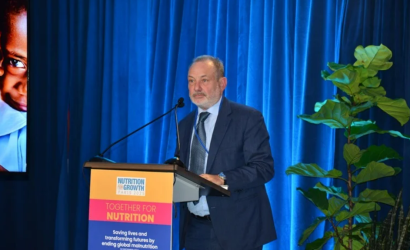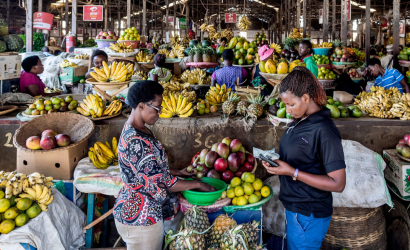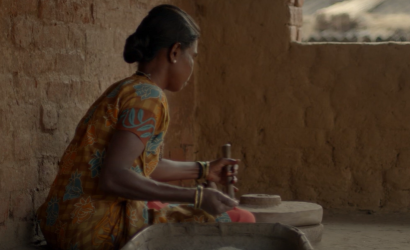On 21 November 2023, UN-Nutrition launched a new webinar series providing a forum for inter-agency dialogue and learning at multiple levels. The series is part of ongoing efforts to step-up UN-Nutrition’s “working as one” approach, particularly in the areas of strategic support for governments and collective knowledge management.[1] These webinars also provide an opportunity to strengthen feedback loops between country, regional and global levels, one of the biggest benefits envisaged by the establishment of UN-Nutrition.
The 5 Ws
A total of four webinars were held, attracting over 130 participants from seven different UN agencies around the globe. While the Asia region was first at bat, successive webinars galvanized colleagues from Africa, Latin America and the Caribbean, the Middle East and Europe. The webinars were geared for UN colleagues, including UN-Nutrition country convenors/focal points/facilitators and regional nutrition advisors from Member Agencies. In addition, colleagues working at the global level, both technical officers and senior nutrition managers, partook in the discussions. This helped to ensure connections and spark dialogue across levels. It also helped raise awareness about how UN-Nutrition is operating in country, regional and global contexts.
While UN-Nutrition partners with other stakeholders, catering to an internal audience for these sessions was crucial to ensuring a safe space for discussion and brainstorming among the participants.
“Don't hesitate to mention your difficulties and share your collective successes,” stated Najat Mokhtar, the new UN-Nutrition Chair, in her opening remarks of the Francophone session.
Dr Mokhtar dually serves as the Deputy Director General and head of the Department of Nuclear Sciences and Applications at the International Atomic Energy Agency (IAEA), one of seven UN organizations represented on the UN-Nutrition steering committee.
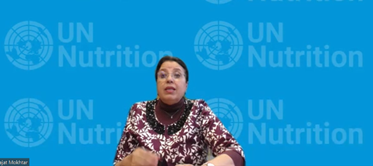
This first round of webinars was co-facilitated by global and regional representatives from five Member Agencies, namely: the Food and Agriculture Organization of the United Nations (FAO); IAEA; the International Fund for Agricultural Development (IFAD); the United Nations Children’s Fund (UNICEF); and the World Health Organization (WHO). Stineke Oenema, the UN-Nutrition Executive Secretary, walked participants through the UN-Nutrition Strategy 2022−2030 and a new guidance note[2] on integrating nutrition into the United Nations Sustainable Development Cooperation Framework (UNSDCF). She was joined by Anna-Lisa Noack, Head of Nutrition and Food Systems at WFP Cambodia, the UN-Nutrition facilitators in Lesotho and Madagascar, and Norma Garcia from the UN Resident Coordinator’s Office in Honduras, who shared good practices on the latter topic.

What nutrition collaboration takes
UN collaboration on nutrition is a reality in many countries to varying extents across all regions. In three of the four webinars, integrating nutrition into UN cooperation frameworks, like UNSDCF, was among the top two enablers of UN nutrition collaboration in a live Menti poll. This underscores the relevance of the UN-Nutrition guidance note as well as the theme of this first round of regional webinars. In terms of tips, Anna-Lisa Noack from WFP Cambodia pointed to the value of sensitizing the country heads of agencies on the links between nutrition and broader sustainable development and the centrality of the multisectoral nutrition approach. This, in turn, enabled them to advocate to the UN Resident Coordinator for mainstreaming nutrition into Cambodia’s cooperation framework. The need for high-level buy-in also emerged in the ensuing webinar sessions, highlighting that nutrition cannot afford to be just a technical discipline. Both Odile Michèle Randriamananjara and Maseqobela Williams, the UN-Nutrition facilitator in Madagascar and Lesotho respectively, mentioned that the presence of a national multi-sectoral nutrition policy/strategy facilitated such integration given that the UNSDCF aligns to government frameworks and priorities.
Joint nutrition workplans or strategies was the other top-cited success factor, suggesting that UN nutrition collaboration does not happen by accident. However, some participants stressed that joint workplans need to be accompanied with joint resourcing in order to live up to their potential. In Madagascar, the presence of the facilitator has helped boost joint nutrition action, including financing. “Inter-agency dialogue is crucial not only to develop the joint workplan, but also to ensure it is iterative, binding and attractive,” remarked a participant from Uganda. Other colleagues acknowledged that regional and global support help with monitoring the implementation of such joint workplans and addressing eventual bottlenecks. Additionally, the UN-Nutrition One UN project, funded by Irish Aid, was recognized as an enabling force in recipient countries.
Where we are stumbling
While raising awareness of the multi-sectoral nutrition approach, including among UN resident and humanitarian coordinators, is instrumental to enabling joint action, this is a weak point in some countries. Consequently, advocacy at the highest level is essential. Competition for resources (human and financial) was across the board the most common barrier to UN collaboration on nutrition at country and regional level, according to the Menti polls. The recent webinars also highlighted a need to build capacity for joint resource mobilization and clarify UN-Nutrition’s relationship with the Nutrition Cluster. The second most frequently cited barrier was limited time to devote to UN-Nutrition collaboration. As some participants noted, coordination is perceived as an ‘extra’ task despite its critical importance, particularly for a multisectoral issue like nutrition.
Furthermore, UN collaboration for addressing conflicts of interest with the private sector is imperative, including to curb rising levels of overweight and obesity. This came out strongly in one of the webinars, prompting participants to share related resources developed by Member Agencies, including new UNICEF guidance on Engaging with the food and beverage industry. However, finding common ground for private sector engagement is not always easy.
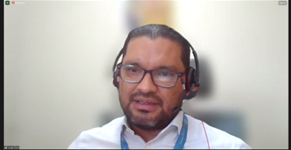
Opportunities and next steps
There are more and more requests from country offices to develop joint nutrition programming and for integrating nutrition considerations in projects. The live polling revealed that joint resource mobilization was by far the most frequently cited opportunity for enhancing UN collaboration on nutrition at country and regional levels, followed by the national food systems pathway. The Scaling Up Nutrition (SUN) Movement was another popular response although not in all regions. There is much appetite to work towards more nutrition-smart UNSDCFs. This is encouraging and strategic, recognizing that the cooperation framework is the blueprint for UN development assistance at country level. While global/regional initiatives rated comparatively low, this could be a matter of timing. Planning for the next Nutrition for Growth (N4G) Summit is currently in an embryonic stage and the Initiative on Climate Action and Nutrition (I-CAN) is still relatively new. When moderating a session during the Francophone webinar, Laetitia Ouedraogo Nikiema, Nutrition Team Lead at the WHO Africa Regional Office, highlighted that I-CAN provides another avenue for stepping up nutrition collaboration among Member Agencies in addition to advancing integrated nutrition and climate action.
The discussions highlighted a need for a common narrative on healthy diets from food systems along with what it entails to transform them for healthy diets and good nutrition, by sector (e.g. agriculture, education, health, social protection, water). It was acknowledged that UN-Nutrition can be further leveraged to make nutrition part and parcel of food systems transformation and in galvanizing the UN agencies for the next N4G Summit. Participants also came away from the webinars understanding that UN-Nutrition can help to connect these two important tracks.
The recent webinars are just the beginning of a journey together to exchange experiences and explore options for improving joint approaches and coordination through UN-Nutrition in the future. This type of peer learning will undoubtedly contribute to the collective’s healthy growth and development and ensure its continued relevance during these fast-paced times. UN colleagues at all levels are encouraged to reach out to the UN-Nutrition Secretariat with their suggestions for topics to be covered by this new series. Let us continue the dialogue; let us continue to learn from one another.
Endnotes
[1] These are two of the three areas of joint work stipulated in the UN-Nutrition Strategy 2022−2030.
[2] Arabic, Chinese, French, Russian and Spanish translations are forthcoming.
